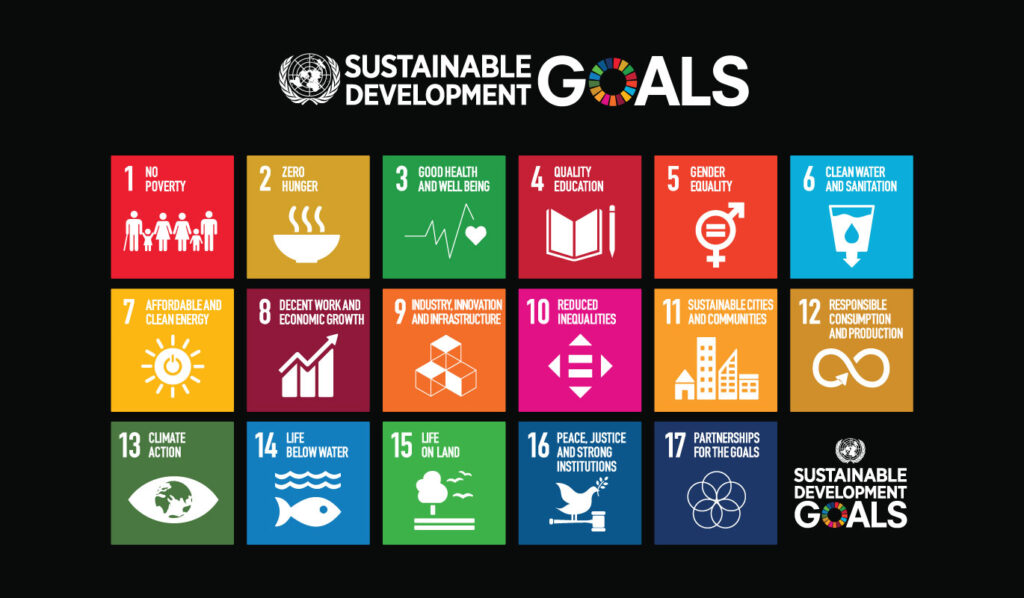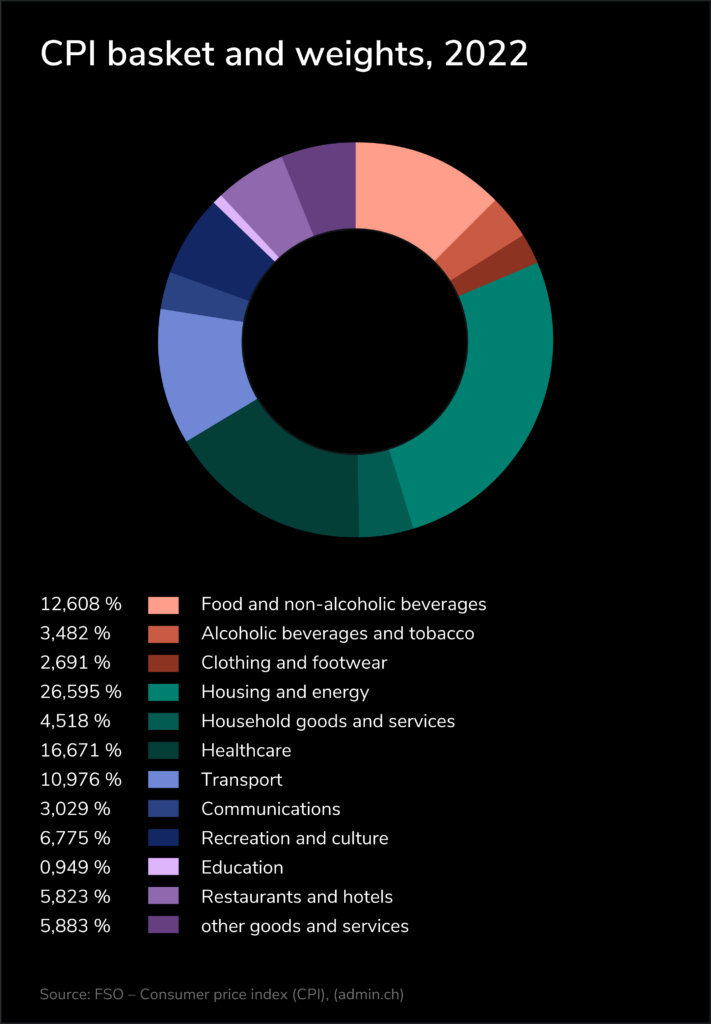Sustainable development is now a hot topic and the goals that stem from it are a priority of the United Nations member states. 17 goals were approved in 2015 with the mission to reach them before 2030. But, as an individual, how can we be sure to contribute to reaching these goals?

Last month the annual Swiss Consumer Price Index (CPI) basket study was published. As a reminder, the Swiss consumer price index measures the increase in the price of consumer goods for Swiss households. The standard basket allows us to understand the weight of these goods in the household budget.
Each year the precise composition of the basket changes, as do the weights of the various categories represented. In the last two years, the main changes were due to changes in household consumption following the COVID-19 pandemic.
Over the years, the market basket has changed to reflect household consumption. This consumption is very often linked to our lifestyle and population trends. Today, as our consumption is increasingly oriented towards a sustainable approach, can we imagine what the Swiss standard basket will look like in 10 years?
In the first quarter of this year, the Federal Statistical Office published its study on the typical CPI basket and its weighting is as follows:

Based on this result and imagining that important changes will occur in our daily life in order to reach the United Nations objectives, which items are likely to change the most in the next few years?
1. Food and non-alcoholic beverages
“Zero Hunger” means eliminating hunger, ensuring food security, improving nutrition, and promoting sustainable agriculture; this is represented by goal number 2.
By increasingly promoting local consumption and local markets over large supermarket chains and fast food outlets, we are improving our nutrition and contributing to more sustainable agriculture.
In addition to this, we tend to preserve the primary sector activities which are essential in our economy and represent almost 10% of the economic activity of the country.
To consume “organic” today represents, it is true, a cost in the budget of the families. Will this trend continue in the coming years? Or will the increase in demand contribute to increasing the number of companies active in this field? And as a result, are we heading towards a “perfect competition” type of market that would lead to lower prices?
2. Leisure and Culture
“Good health and well-being” is the third objective, which aims to enable everyone to live in good health and to promote the well-being of all at all ages.
In this context, we give more and more space to our leisure activities in our daily life in order to promote our physical and mental health. Our workplaces and schedules are evolving to allow everyone to have time for leisure and for their loved ones.
This is essential for the well-being of the population but also for the well-being of our companies. Healthy and happy employees are less likely to be sick or absent and this will avoid important costs to the country’s economy!
Moreover, access to culture is a main objective of the Confederation so that it is no longer reserved only for the upper social classes. In Switzerland, we are lucky to be able to participate in many cultural events and activities but there is still a lot of room for improvement in this area.
3. Education
“Quality education”, i.e. ensuring equal access to quality education for all and promoting lifelong learning opportunities, is goal number 4 of the United Nations.
In this respect, Switzerland can boast of being a reference in the field, where access to free education is privileged and university training is accessible at an affordable cost. Education could be more important in the future because more and more people are going to university, and for longer periods. This is due to several factors, but the simplified access to information, the disappearance of an elite, and the reduction of inequalities in the workplace encourage the willingness of young people to get more education.
i-vest also wants to contribute to this access by offering one of the most important free financial education platforms in the long term. And this is for all levels, genders, and ages!
And you, how do you think our consumption will evolve in the future? Feel free to share this article and your opinion on social networks and tag the i-vest by Alpian team to continue the discussion!
***
Disclaimer:
The content of any publication on this website is for informational purposes only.




